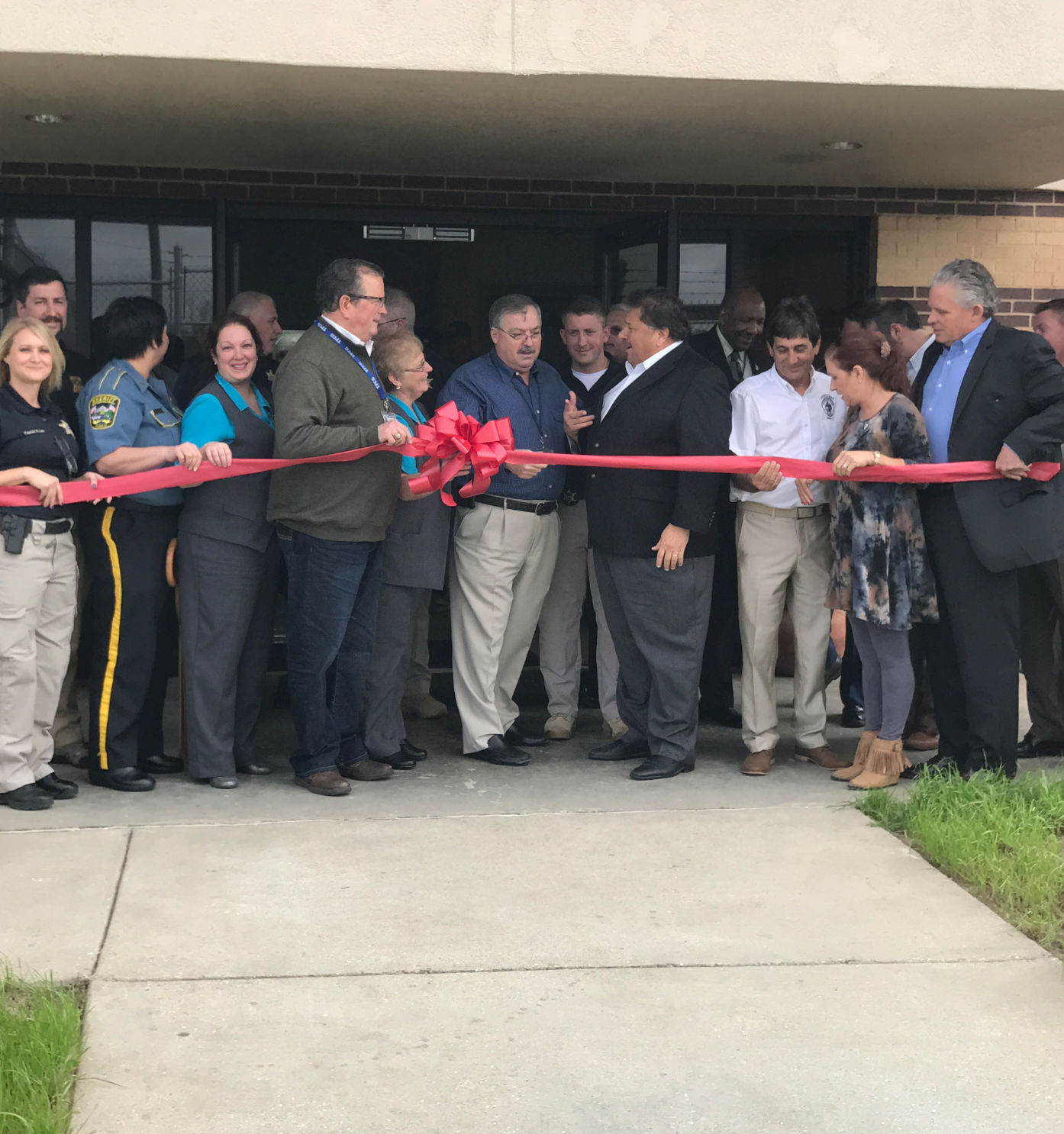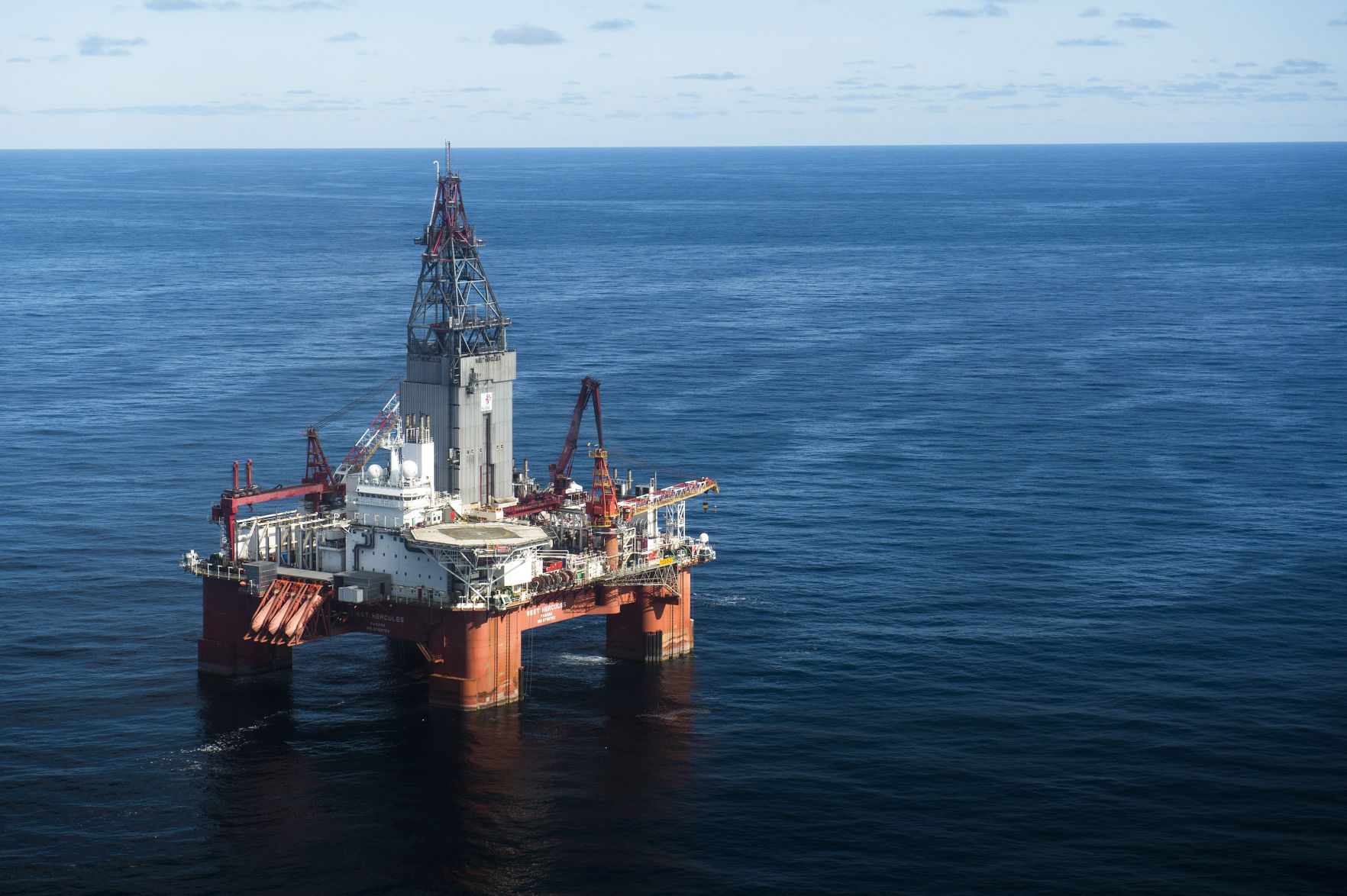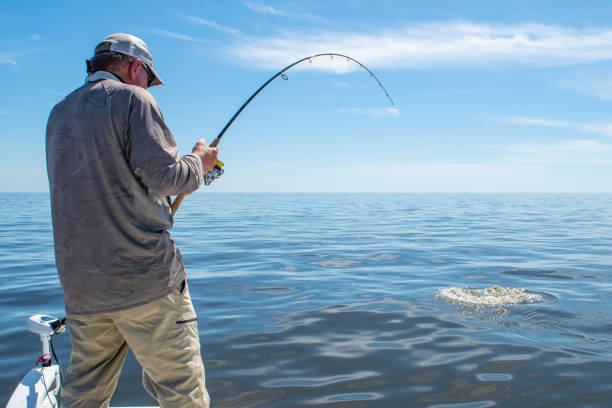
Terrebonne’s women’s jail closed
January 24, 2018
Lafourche Booking Log – Jan. 23, 2018
January 24, 2018The manager of an offshore oil recovery firm told Bayou Region industry leaders last week that with a history of profits and the Donald Trump administration’s willingness to ease regulations, future profits on the Gulf of Mexico’s continental shelf are assured.
Mike McCauley, general operations manager of Houston-based Arena Offshore, gave a rally-style speech at the South Central Industrial Association’s first meeting of the year.
He cited statistics he had gathered just before Christmas, “Oil stocks were down 14 million barrels, demand is up almost 15 million a day, year on year global oil markets are rebalancing. So since that time oil prices have increased another eight to ten dollars a barrel … we feel good about the future.”
“So why should the industry feel good about the Gulf of Mexico Shelf? Well there was an election that was held in 2016, and that’s kind of resulted in a new outlook. An executive order was signed 13777 which mandates a review of all existing regulations,” he said. “That’s kind of reset the bar there. In regards to the Gulf of Mexico, is a relook at the well control rule, production safety rule, insurance… all those things are in the works. We are helping to collaborate with those rewrites and hopefully it will be things that come out that make more sense for both the industry and the regulators.”
Arena Offshore is a privately-owned company and has been the second most active driller in the Gulf since 2012, according to McCauley, who predicts them to be 2017’s most active.
The speech addressed factors McCauley said are driving the underutilization of the shelf: regulations, storms, and an image of uncertainty. The key to overcoming this, adaptation.
After the BP oil spill, the oilfield industry had many new regulations put in place. McCauley said that increased the costs of operations, because businesses needed to hire more personnel. McCauley suspects Arena’s staff has doubled since 2010 while activity has remained the same. “You just need a lot more people these days, in this environment,” McCauley said. “Also, the concern is, or at least has been, especially for the bankers and the people that invest, what’s the next rule out there that’s going to come up? How’s that going to affect the business? This uncertainty, and there has been uncertainty, that really drove the capital away as well.”
As an example, McCauley cited the effect S.E.M.S, or Safety and Environmental Management Systems, had on the field. “There was a little resistance about them getting in our business at the time. It’s a good thing, it’s worked out good for the industry for the most part.”
“It became very clear that if you wanted to be a player in the Gulf of Mexico, you’re gonna have a strong SEMS program and your contractors need to have a strong SEMS plan,” he explained. “And that’s where we made a conscious decision… you have to treat your contractors as your partner and you have to make it your business to make sure they are on top of their game – that they have the right policies and procedures in place, that they are enforcing them, because if they fail, we fail and the whole industry fails.”
McCauley noted how the incident changed the field’s mindset about taking measures to avoid another incident like Macondo (the BP oil spill), “I think the important thing is, as an industry, we all want to ensure that the companies that are out there, especially the smaller companies like Arena, are prudent operators – good stewards of the environment – so that nobody gets a black eye,” he said.
While these concerns were prevalent, McCauley said, there hasn’t been much installation of new structures on the shelf over the past several years, and that there has been an increase in removal of structures.
“If you get in a helicopter and fly out there you see a lot of dead areas that used to have a lot of structures,” McCauley said.
To emphasize McCauley’s point, he said that in the 1950’s there were upwards of 7000 sites but today that number lies somewhere below 2000.
Arena seeks out leftover sites because it’s much more efficient for them to drill off an existing structure, McCauley stressed importance of existing infrastructure.
“One of the keys to Gulf of Mexico players is to have infrastructure offshore because its most effective to, and efficient to, drill off existing structures or have a pipeline installed nearby so that you can minimize your costs to get the product to market,” he said.
In response to this issue, Arena has adapted by lobbying against it.
“We’ve certainly been visiting with our regulators over the last couple of years, especially this year, to emphasize the point that maybe, you know, there’s been a lot of iron cleaned up from this idle iron rules that we’ve had,” said McCauley. “But the offset to that is that it’s taking away our opportunity for independents to go out there to drill off of existing structures, and we ask that they can reconsider relaxing those regulations and maybe in certain circumstances keep existing structures out there to be drilled in the future.”
To sum up his points about regulations, McCauley noted that offshore has become a safer work environment.
“They’re more environmentally sound than it’s ever been, and there’s a lot of good that’s come out of some of these regulations.” McCauley then added, “However, we all know that there’s some things that can be adjusted to make it a more efficient process.”
When it comes to dealing with adverse weather, like hurricanes, McCauley expressed the importance of understanding the structural integrity of the platforms.
“You have to know how they were built, how they were designed, what their current condition is, and what’s their likelihood of falling over” he said.
While there were hurricanes that happened in 2005 and 2008, McCauley said they were an anomaly.
“That kind of blew things out of proportion for investors that said, you know, ‘we can’t do business in the Gulf of Mexico, because of these hurricanes,’” McCauley said. “Well time, history, has shown that things settled down and that’s really not the norm.”










